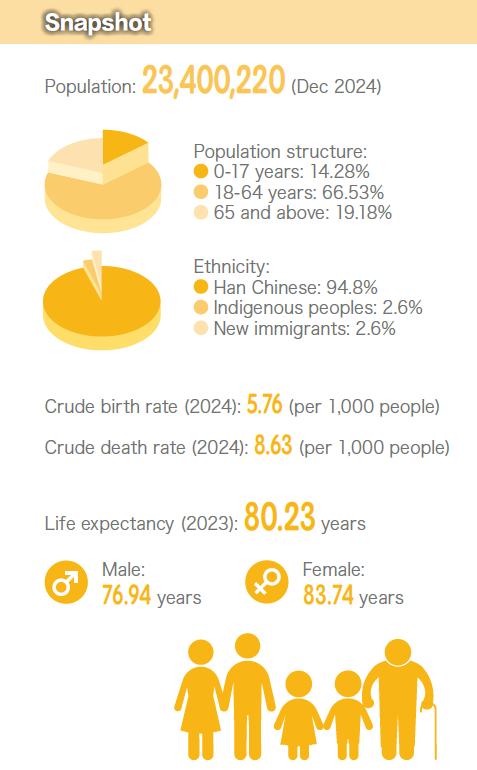There is growing appreciation in Taiwan for the cultural legacies of the 16 officially recognized Austronesianspeaking tribes, which constitute just over 2.6 percent of the population. Public and private organizations are working to revitalize their languages and cultures, as evidenced by the launch of the Taiwan Indigenous Television channel and the passage of the Indigenous Peoples Basic Act.
The convergence and interplay of currents of hu manity have helped transform the country into an openhearted, forward-looking society incorporating diverse elements from around the world as part of an evolving shared identity.

